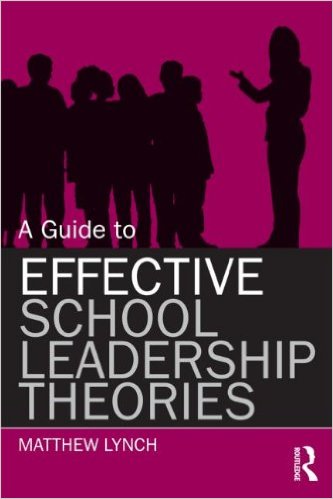Social reading: Oxymoron or 21st century paradigm?

**The Edvocate is pleased to publish guest posts as way to fuel important conversations surrounding P-20 education in America. The opinions contained within guest posts are those of the authors and do not necessarily reflect the official opinion of The Edvocate or Dr. Matthew Lynch.**
A guest column by Amber Chandler
“So I’m timmy as you probably know it’s my first full length book. This isn’t a chapter book so don’t start holing your breath. If you think I’m a good student RONG!” These are the words (mistakes and all) that I just cut and pasted from my seven year old son Oliver’s book that he is writing, called, you guessed it, Timmy. Now, if you are a parent of anyone under the age of 12, you might realize that my son is not a child prodigy, but instead a very good mimic of the self-deprecating humor of Greg of Diary of a Wimpy Kid fame, mixed with a bit of James Patterson’s Rafe from his Middle School series. My kids have listened to audiobooks their whole lives to fall asleep, so I’ve heard these two series myself about a million times.
What Oliver is actually doing can be classified as “fan fiction,” a genre that developed primarily around the Harry Potter series, but has exploded, or as my 10 year old daughter would say, “Yes mom, it’s a thing.” Readers—fans—have created all sorts of ways to respond to the literature they love, anything from podcasting to story extensions.
My goal is for students to experience the joy of reading unencumbered by the expectation of an analytical essay or the pressure to “close read”—both activities that I teach at other points in the year, guiltlessly, as they are important skills and can be taught in inventive and interesting ways. However, I think that students must also be given a creative outlet for their responses to literature and that we’d all be better served if the link between reading and writing is severed on occasion.
What does this “Bookclub” look like in action? Well, as I told my administrator who will be doing my formal observation soon, “You know that Project Based Learning is a little. . . chaotic, right?” Paradoxically, the way that teachers can embrace this freedom is through very organized planning. My tips:
Facilitate Good Choices:
After groups are formed—I allow them the freedom to choose, with five students being the maximum number—I make sure that students find the “just right” book for their group. The best way to do this is to work in conjunction with your library. Mrs. Brew, our library media specialist, has developed sets of “Bookclub” copies, in part as a result of this yearly project. This year, I found that students were very engaged with the video trailers she shared with us and chose books that were featured.
The first important task, after students have chosen their books, is to chunk the book in to sections and set due dates that students mutually agree upon. For example, do they want to read over weekends? What is a reasonable number of pages that they believe they could read during a Sustained Silent Reading period of ELA? I include this step under “Facilitate Good Choices” because students may find that the book is impossibly long, or that the book might not be meaty enough to use for this project. I encourage students, as I am monitoring this process, to consider sport’s schedules, concert dates, and family obligations as they do this very important first step.
This year, I overheard one of my students say, “I don’t want to read on Wednesdays. My dad picks me up that night, and I can’t spend the time reading when I don’t see him until the weekend.” Another student, lamenting her complex track/National Junior Honor Society/chorus/Confirmation Classes schedule, informed her group, “I think I have to read it in bigger chunks over the weekend. My week is stacked!”
To teachers, who are often the Type A orderly planners, this “chunking” of reading and calendar planning seems like a waste of time. Take it from that Type A planner, just because I have a darling calendar with stickers representing everything from dentist appointments to play dates, many students are not wired that way. In fact, I allow my generation of Digital Natives to use their calendar on their phones or electronic devices, encouraging them to synch with their parents. I also show them how to set reminders with alarms because they may be tech savvy, they aren’t all well-versed in these more adult focused apps.
Put It In Writing:
I tend to be very overt in my explanations for several reasons, the most vital two being the tremendous help it is for Special Education students and the importance of criteria for the projects. In order to grade with the maximum amount of feedback, I use rubrics, but I also list requirements very specifically.
Here is the explanation of the project that I provide to students and parents, as well as our librarian.
For me, I think this type of classroom structure might be the beginning of something bigger because I’ve noticed how entranced my own son is, and how even my most reluctant learners are embracing the idea of role-playing and readily accept being a part of a Fandom. These are Digital Natives we’re talking about, so it shouldn’t be a surprise that they crave the connectivity that evolves when we make reading social.
To me, reading has always been an intimate experience between my friends and I—you know, the characters in the book. You couldn’t convince me that Meg Murry, Margaret Simon, and Deenie were not a part of my childhood. Now though, I am seeing how a social experience could enhance reading, particularly for those who, unlike me, (the self-proclaimed reading nerd), might not forge relationships with the characters. Instead, a community of readers can develop together in ways that are comfortable for Digital Natives. And, equally exciting is how this social experience can lead to collaborative writing.
I can tell you that “social reading” may seem like an oxymoron, but when students are engaged, there is nothing more logical. After all, teachers have been trying for decades to move to more collaboration in their classrooms; however, once again—and almost like always—students have found the solutions themselves, and 21st century teachers should embrace the role of “obstacle mover” and “opportunity maker” and facilitate an approach to reading that is both social and intimate, a juxtaposition worth exploring.
________________

Amber Chandler is a National Board Certified ELA middle school teacher and education writer in Hamburg, NY. Follow her on Twitter @MsAmberChandler and visit her website AmberRainChandler.com.




